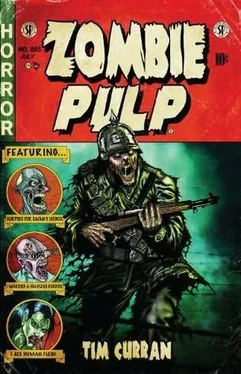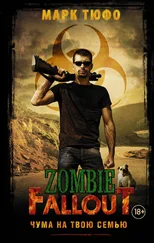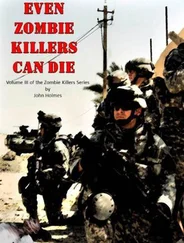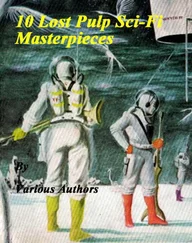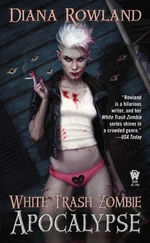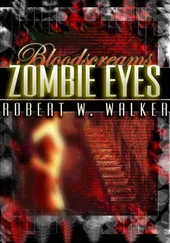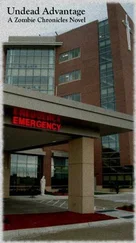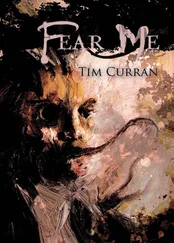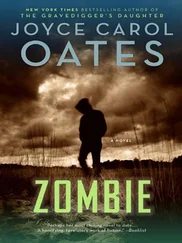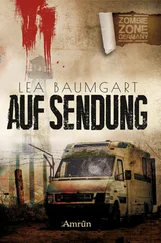Curran Array - Zombie Pulp
Здесь есть возможность читать онлайн «Curran Array - Zombie Pulp» весь текст электронной книги совершенно бесплатно (целиком полную версию без сокращений). В некоторых случаях можно слушать аудио, скачать через торрент в формате fb2 и присутствует краткое содержание. Жанр: Триллер, на английском языке. Описание произведения, (предисловие) а так же отзывы посетителей доступны на портале библиотеки ЛибКат.
- Название:Zombie Pulp
- Автор:
- Жанр:
- Год:неизвестен
- ISBN:нет данных
- Рейтинг книги:3 / 5. Голосов: 1
-
Избранное:Добавить в избранное
- Отзывы:
-
Ваша оценка:
- 60
- 1
- 2
- 3
- 4
- 5
Zombie Pulp: краткое содержание, описание и аннотация
Предлагаем к чтению аннотацию, описание, краткое содержание или предисловие (зависит от того, что написал сам автор книги «Zombie Pulp»). Если вы не нашли необходимую информацию о книге — напишите в комментариях, мы постараемся отыскать её.
Zombie Pulp — читать онлайн бесплатно полную книгу (весь текст) целиком
Ниже представлен текст книги, разбитый по страницам. Система сохранения места последней прочитанной страницы, позволяет с удобством читать онлайн бесплатно книгу «Zombie Pulp», без необходимости каждый раз заново искать на чём Вы остановились. Поставьте закладку, и сможете в любой момент перейти на страницу, на которой закончили чтение.
Интервал:
Закладка:
“ Well, they’d replace him, wouldn’t they?” Burke said. “Then they’d march him out and shoot him.”
Creel wrote that down, amused by his own question.
Being a journalist, he was there out of the mutual suffering of the general staff and the line officers. The Brits already had their own carefully-controlled correspondents, they didn’t need some Yank from the Kansas City Star coming in and mucking things up with his glib tongue and saucy manner, but President Roosevelt had pushed the British on the matter. Saying that if American correspondents were not embedded with British and Canadian units, it would harm the war effort…in other words, if the proper spin wasn’t presented to the American public by Americans, he’d never be able to get the public to swallow the idea of committing troops and dollars.
So the British Expeditionary Force submitted and the BEF did not like submitting to anything.
There were four men in the raiding party: Sergeant Kirk, Corporal Smallhouse, Privates Jacobs and Cupperly. In addition to his Enfield rifle and fixed bayonet, Jacobs carried fifty rounds of ammunition. Kirk was the grenade man. He carried a haversack filled with Mills bombs. Smallhouse was a grenade thrower, too. Last in line was Cupperly, another rifleman with fifty rounds in his bandolier.
Two other raiding parties led by two other sergeants would be going out as well.
“ We’re going to go out and play naughty schoolboy,” Kirk said, grinning. “Our job is to annoy, disrupt, and cause trouble. A burr in the Hun’s behind, that’s us. A merry lark it shall be.”
Creel found it interesting how Kirk, who was a pretty decent guy by all accounts, really enjoyed these raids. There was a mischievous gleam in his eye and a crooked smile to his face like the appointed task was a bit of boyhood deviltry like tipping over privies or putting wormy apples on the teacher’s desk.
With Burke and Creel tagging behind, they went over the top at nightfall and into the muddy, corpse-strewn waste of No-Man’s Land. Faces blackened, moving like shadows, they crept at a low crouch or crawled through the mud, legions of corpse-eating rats moving in dark rivers around them. On his belly, Kirk cut them a hole through the wire and within minutes they spotted two German forward sentries. Jacobs and Cupperly took them out silently, rising like shades behind them and clubbing them over the heads with the butts of their rifles, then bayoneting them in the throats. It took very little time and the only noise was the impact of rifle butts against helmets and the sound of blood bubbling from gored throats.
Silently then, the raiders dropped into the first line of trenches which were well ahead of the main German trench system. They crept their way through, moving from bay to bay, tossing grenades when they heard movement. They killed half a dozen Hun this way. It was quite efficient, Creel thought, and the element of surprise was a big part of it. There had been an artillery barrage less than an hour before which drove the Germans from their trenches and into their sandbagged dugouts on higher ground. The only men left behind were sentries and they paid with their lives as all three raiding parties moved fast, clearing trenches and stealing equipment, destroying anything they couldn’t take with them.
Burke told Creel later that it was a near-perfect raid, for usually the Germans heard them cutting through the wire and opened up with machine-gun fire.
The three parties combined cleared over four-hundred feet of trench before they heard a German reaction force mounting a counterattack.
The raiders slipped out of the trenches with three prisoners, running and stumbling back to their own lines. All in all, it was a crazy, heart-pounding sort of way to spend a few hours.
One of the captured Germans was an old white-haired sergeant with only two teeth left in his mouth. He had surrendered instantly, throwing up his arms and shouting, “Kamerad!”
“ Lot of them give up easy like that,” Burke said. “Just glad to be out of this bloody war.”
The prisoners were taken into one of the British dugouts where they could be interrogated by the intelligence officer. Creel and Burke and a few others waited there with them. Creel gave the old sergeant a cigarette and he grinned with those near-empty gums. He smoked the cigarette, muttering, “Kamerad,” under his breath again and again as if to reinforce the point. But after a time, he began to look very grim, jabbering on incessantly and pointing in the direction of No-Man’s Land. “Die toten…die toten!” he began to cry out, his eyes as dark as burnt cinders. “Die toten…die toten dieser spaziergang! Das tote wandern! Die toten dieser spaziergang!”
“Quit yer yabbering,” Burke told him.
But if it was yabbering, then it was some of the most unusual yabbering that Creel had heard in that war. Maybe his German wasn’t the best, but what the sergeant was saying was all too clear and the fear behind it unmistakable.
The dead, he was saying. The dead that walk.
That’s when Creel began to get a few ideas and getting them, smelled blood in the water.
3
Memento Mori
The Germans mounted a small, inconsequential, half-hearted offensive that left their corpses scattered about the perimeter like rice after a wedding. The rain fell, bloating the corpses, puffing them up into particularly unpleasant white mounds of decomposition that flowered weird growths of fungi. Though the stink of them was no worse than the usual smell of Flanders, they did season things up to the point where the officers were complaining and that got action. A small group was sent out to bury them in a mass grave.
Creel went with, taking his little box-shaped Brownie camera with him and getting some nice shots of the cadavers. He had quite a collection by that point: corpses blown up into trees, tangled in the wire, sinking in the mud, nested by rats, and-his favorite-a Hun officer who’d been machine-gunned but was held upright in a casual sort of stance by a sharp oak branch that had speared him through the back. When Creel had snapped that one, many months after the First Battle of Ypres, the officer had been nearly picked down to bones by the local ravens and buzzards-sparrows nesting in his ribcage and skull-and he looked very much like a skeleton on a jaunty afternoon stroll, steel helmet tipped at a rakish angle.
It became an obsession for Creel in that war to collect photographs of the dead as it had in other wars he had covered. The Tommies either politely ignored him or were openly offended by what he was doing.
“Why?” Burke asked him one day. “Why do you want pictures of that? Your paper won’t print such things.”
Creel had laughed as he always laughed at the question: a cool, bitter sort of laugh. “I do it because I don’t understand death. I don’t understand the process of life becoming death.”
“Nothing to understand, mate. You get it or you don’t get it, saavy? Me mum would say it’s God’s province.”
“Yes, God’s province, but man’s suffrage.”
The day after the Hun were shoveled into a mass grave, the BEF put together their own little counterattack and with similar results. The trenchlines were stagnant and had been for months, the only thing that ever changed was the amount of corpses left to boil in the sun and melt into the mud of Flanders like wax effigies.
Afterwards, Creel watched the walking wounded coming in-grimy, mud-caked, fatigued, bloody-with their slings and bandages, none of them speaking as if the war had erased their voices and turned them into mutes. They shuffled along, limping and hobbling on swollen feet, a procession of the maimed and he got the feeling that when they signed on beneath the grim shadows of Kitchener posters (WE WANT YOU!), they hadn’t expected it to be like this. All of them had the same dead tombstone eyes gray as puddles of rain. The only difference between them and the dead spread across No-Man’s Land is that they were walking.
Читать дальшеИнтервал:
Закладка:
Похожие книги на «Zombie Pulp»
Представляем Вашему вниманию похожие книги на «Zombie Pulp» списком для выбора. Мы отобрали схожую по названию и смыслу литературу в надежде предоставить читателям больше вариантов отыскать новые, интересные, ещё непрочитанные произведения.
Обсуждение, отзывы о книге «Zombie Pulp» и просто собственные мнения читателей. Оставьте ваши комментарии, напишите, что Вы думаете о произведении, его смысле или главных героях. Укажите что конкретно понравилось, а что нет, и почему Вы так считаете.
